I present you the guest post by Paulina, my fellow blogger from Karaiby Oczami Badacza. She’ll tell us the mysterious stories about New Orleans hoodoo magic. Dolls, candles, spells, all of these you’ll find in this article! At the bottom of it, I’ll give you some advice about where to stay in New Orleans if you’re looking for mysteries, and which trips to take to feed your spark of curiosity. Happy reading!
Today, it’s gonna be a bit magical, because I will reveal to you the secrets of the powerful and mysterious folk magic – New Orleans hoodoo. The term hoodoo is commonly used by residents of Louisiana and is a trademark of New Orleans. If anyone of you ever visited New Orleans, he knows what I’m talking about.
Skeletons smiling from shop windows, magic potions and blends of herbs to bring us luck, books with hoodoo magic spells and hundreds of magical attributes on store shelves. When we see these objects, we do not realize that they are all indispensable elements of hoodoo magic.
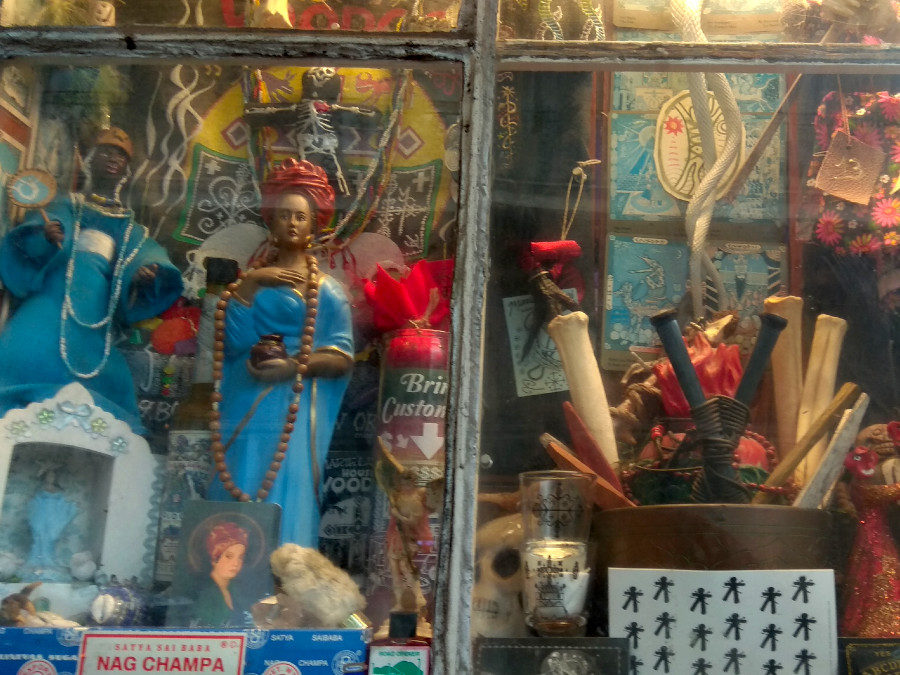
Where does hoodoo come from?
Hoodoo is a collection of folk beliefs and elements of magic, occurring mainly in the southern United States. The basis of hoodoo beliefs is African faith which came to the United States with slaves.
Apart from them, we can also see many Christian, Jewish and Indian elements. The meeting of many cultures in Louisiana and longing for the native land resulted in the birth of a new religious form which was hoodoo.

Download the free list of
21 Advanced Travel Tips
and improve your travel planning process
with these easy steps!
Thank you!
Now check your inbox and confirm your email. Remember to check out the SPAM folder as well.
In 1930, when New Orleans became a tourist attraction, hoodoo was an exotic element of American life. Numerous stalls and shops offering magical dolls, powders, amulets were the fastest growing business in the area.
The most well-known”priestess” of hoodoo was Marie Laveau. She was also the most influential woman in New Orleans. She played the role of an oracle and adviser to the wealthy Creoles, offering private rituals in her home on St. Ann Street in New Orleans.
I had the opportunity to visit this place and do some shopping in a small shop named after her. I do not conceal that this place is unique, emanating some strange and disturbing energy.
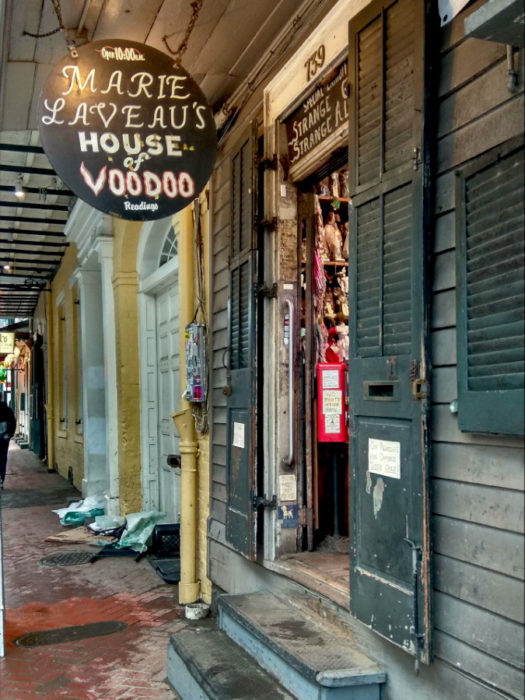
Hoodoo vs. voodoo (vodou): do not confuse those terms
The American film industry and popular culture have created a demonic picture of voodoo, associated mainly with dolls used in black magic and bloodthirsty zombies.
Western society demonizes voodoo to such an extent that even the word itself makes you think of it as a bad cult and black magic.
The name voodoo is only the Americanized form, which most often appears in films or popular culture. The word voodoo is not identical with the American variation of this religion – that is hoodoo, or even more the Haitian religion.
The use of the term voodoo in relation to the Haitian variety of vodou or Benian vodu is an act of Americanization. Both hoodoo and Haitian vodou are religions originating from African roots, rooted in the rituals of tribal cultures.
Hoodoo is more like African folk magic from Trinidad or Jamaica than from Cuba or Haiti, which contain elements of Catholicism and French, Spanish or Portuguese traditions.
Unlike the Haitian vodou, hoodoo contains a set of practices based on other systems of spirituality and magic. This is not an official religion, no priests, no canonical beliefs and no power structure.
Many practitioners use hoodoo next to their own spiritual beliefs, although Christianity is still a common element.
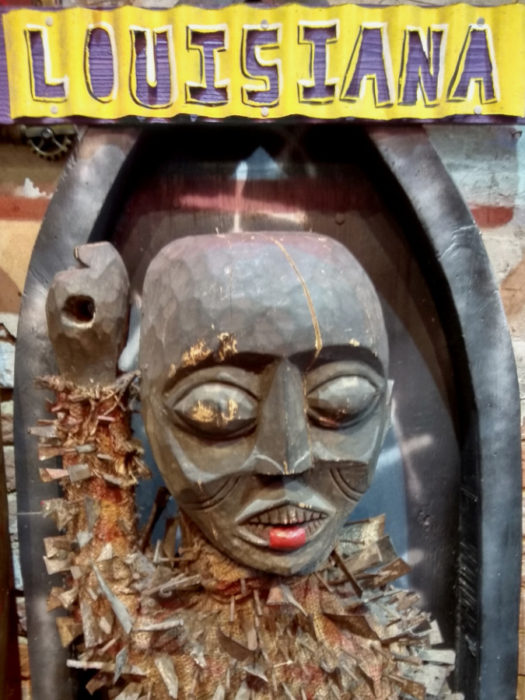
Hoodoo Magic Attributes
No religion has as many magical attributes or gadgets as hoodoo.
Marie Laveau was the first to introduce Catholic religious devotions to the cult of hoodoo, such as crosses, candles, and statues of saints. She wanted to show that this religion has much in common with Christianity.
Candles
Most religions accept the use of candles during prayer.
The false assumption is that the use of candles is an element of black magic, satanism or other magical cults. Lighting a candle is nothing but an act of sacrifice.
Hoodoo candles are available in all shapes and sizes in many New Orleans hoodoo shops. The most popular are those with pictures of saints, angels or with printed prayer.
The color or size of the candle is selected depending on the intentions, for example, green is money, red love, and black protection.
Each candle must be anointed with the appropriate essential oil, depending on the needs and intentions. According to the wish expressed, the burning of the candle releases the causative power.
An important element of the candle burning ritual is reciting the appropriate psalm and prayer.
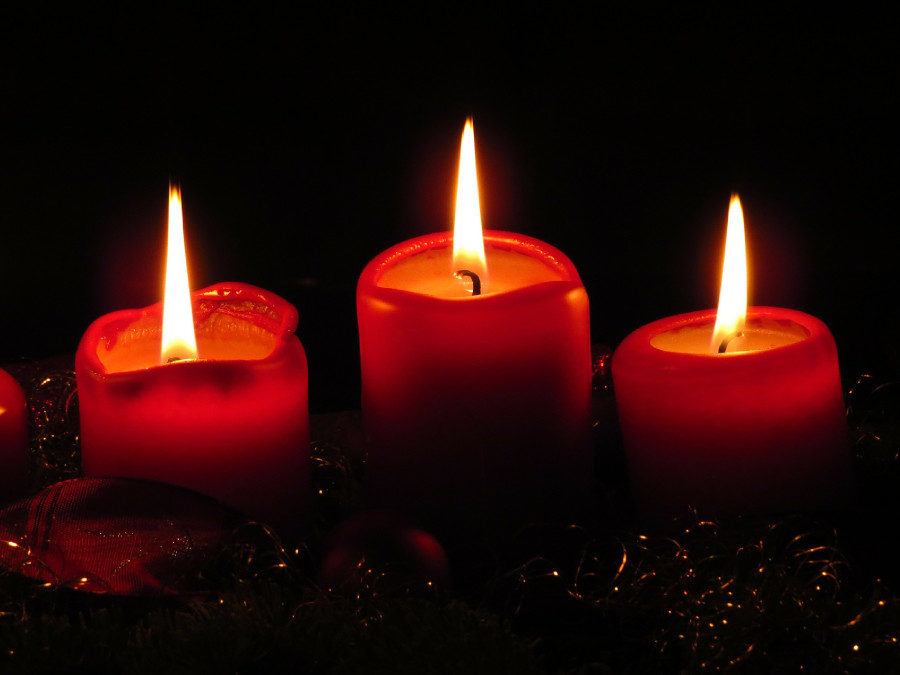
Plants and essential oils
The magic of hoodoo is based mainly on herbal medicine, the use of the power of objects, stones, and essential oils. This is not a secret knowledge that only a few have access to. Our great-grandmothers also had medicine in their own garden for every disease.
Every plant or oil in hoodoo is responsible for a different kind of success. For example, aloe gives us protection, ambra – love, anise – happiness, ginger – luck in gambling, and basil – peace.
A similar thing is with minerals and stones. Each specific mineral has a magical power assigned. I am the owner of the amethyst that I found in the Arizona desert and which I treat as my lucky amulet. Amethyst is responsible for health and spiritual protection. Agate for health and luck in gambling, pearls for happiness, crystal quartz for a blessing.
Also, some items have their magical powers, and possessing them can give us certain benefits. It is worth drying the wedding bouquet to keep the love forever or collect rainwater in a small bottle as a guarantee of protection against evil.
Of course, for all objects or stones to have magical power, the appropriate spell must be spoken.
Talismans
Another attribute without which there is no hoodoo magic are talismans.
In Afro-Caribbean syncretic religions such as vodou or santería, drawings of various symbols are used as amulets and placed in mojo bags. The material for bags is usually fabric or leather. Inside, in addition to the symbols, we can insert roots or herbs.
The basic symbols placed on talismans or drawn on a sheet are Sator-Rotas Squares. They are one of the most popular magical squares, mentioned in Pliny’s the Elder “Natural History”. We could also find four-leaf clover, pentagram, loa ghosts symbols or kabbalistic signs.
Do you have to be afraid of hoodoo magic?
The magic of hoodoo contains thousands of spells and rituals. They start with simple wishes such as lucky lottery or love.
But they end up with more serious ones such as bringing disease to someone.
I am of the opinion that there are no jokes with magic, and amateur spells can do more harm than good.
From my own experience, both in science and travel, I know that hoodoo is not just a form of fun.
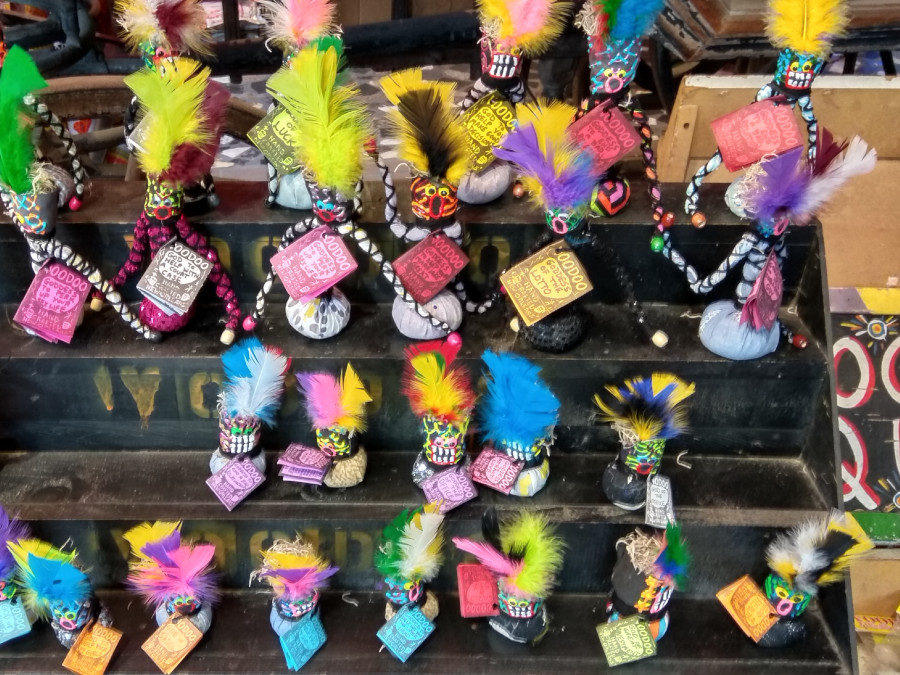
Be aware of pseudo priests and fairies that offer their services on the Internet.
If you want to use a professional service, it is worth visiting New Orleans. Simply sign up for a session for someone who has sucked up hoodoo with their mother’s milk.
Being in Haiti, one of the priests told me important words. They are a warning to the unskillful use of magic:
“There are things that can not be spoken loudly so as not to wake up evil spirits and bring unhappiness upon yourself”.
It is worth remembering this while practicing pseudo magic.
If you would like to experience a cinematic exploration of the hoodoo mystery, I encourage you to watch the film “The Skeleton Key”. This movie contains a description of American hoodoo and dark rituals in its story.
In the film, you can see the entire palette of attributes necessary to carry out magical rituals. You will see there as amulets, magic herbs, spells, oils, and perfumes. I do not conceal that this is one of my favorite movies on this subject.
And what you think about the hoodoo New Orleans magic? Would you believe? Leave a comment!
Where to stay in New Orleans?
I made a small research for you of some great guest houses and hotels in New Orleans. All they are located in the historic French Quarter, near Marie Laveau’s house. They might be a perfect fit for your New Orleans travel.
- Cornstalk Hotel – the small lovely hotel in the old-times house. It offers sophisticated rooms with anitque furinture, ideal for history lovers. Check out the availability on Booking.com | Read reviews on TripAdvisor
- Bourbon Orleans Hotel – this elegant place combines the former traditional styles with modern facilities. After visiting the neighbourhood, you can enjoy a creole meal in a hotel’s restaurant or relax on the pool. Check out the availability on Booking.com | Read reviews on TripAdvisor
- Place d’Armes Hotel – this charming hotel located near the Jackson Square by the river offers a truly unique feeling of Louisiana accommodation. Delicious breakfast is a stylish dining room is included. And after this you can relax on a traditional green inner patio. Check out the availability on Booking.com | Read reviews on Trip Advisor
Mysterious trips in New Orleans
While being in New Orleans, the great option is to take a guided tour with a local who will tell you all the magical secrets about this place and its hoodoo and voodoo history. Here are some experiences you can try:
- New Orleans: Ghosts, Vampires, Witches & Voodoo Walking Tour – 2 hours walk among the legends and mysteries of New Orleans. You’ll see the most important from the mysterious point of view spots and get to know the stories behind them. Book this tour on Get Your Guide ->
- New Orleans: Voodoo & Cemetery Tour – this 2 hours tour will take to one of the most important place in the city: the old St. Louis Cemetery No. 1 where famous Marie Laveau rest. There is almost no better place to hear the ghost stories than the cemetary. Book this tour on Get Your Guide ->
- New Orleans: Haunted Pub Crawl – that’s the perfect option for fans of having fun while listening to thrilling stories. This walk among the haunted pubs in New Orleans with a drink in a hand will definitely be a great experience. Book this tour on Get Your Guide ->
Like it? Pin it!
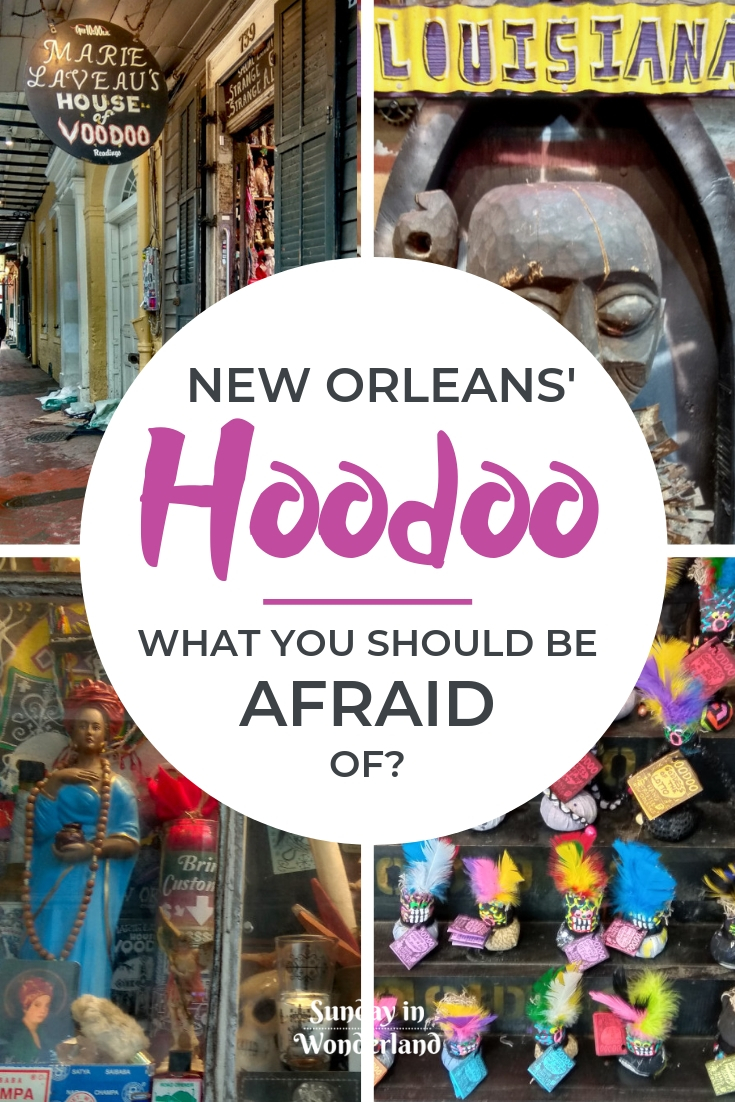
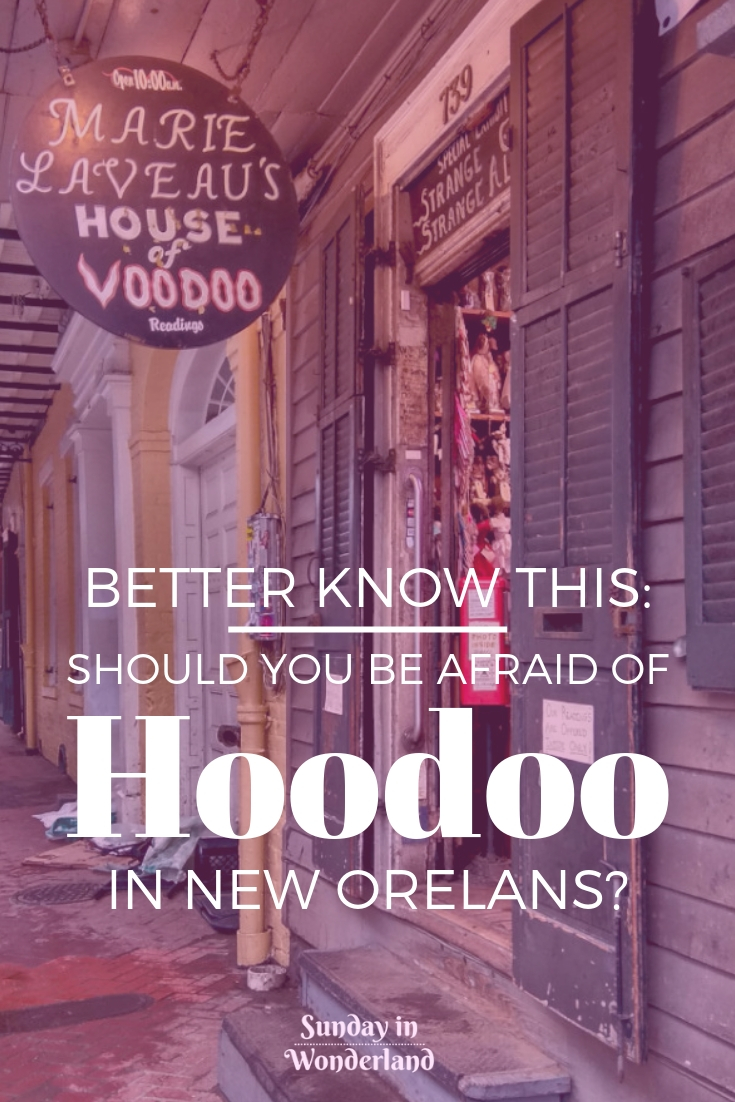
Podróżniczka zakochana w Karaibach, a także badaczka pochłonięta pisaniem pracy doktorskiej na temat haitańskiego vodou. W wolnej chwili prowadzi bloga Karaiby Oczami Badacza, na którym opisuje życie na Karaibach i ostatnią swoją wielką podróż po USA.

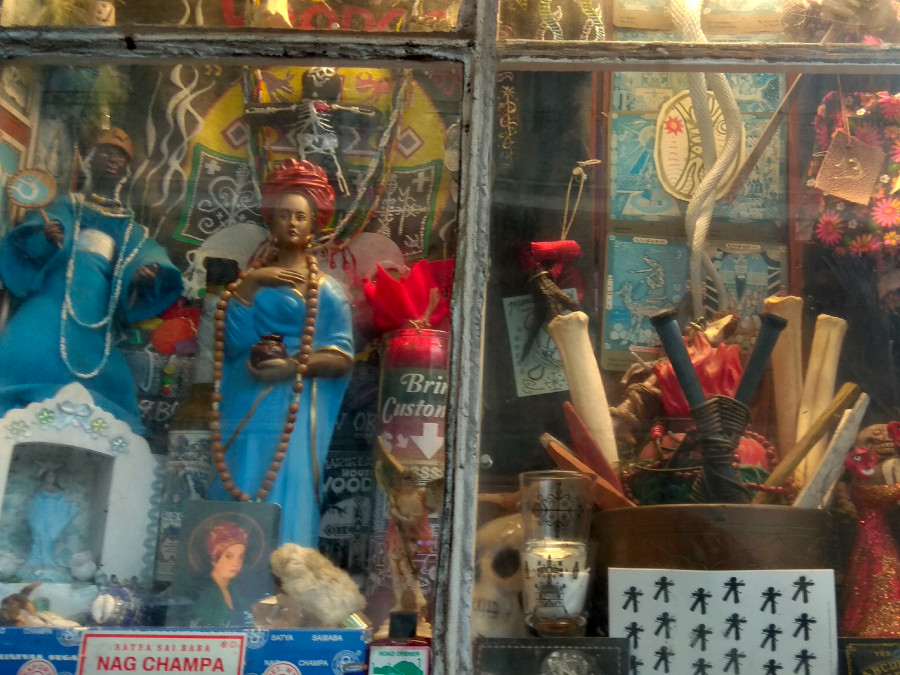



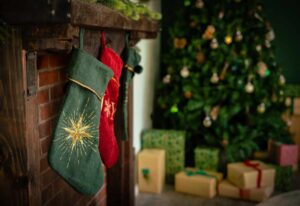
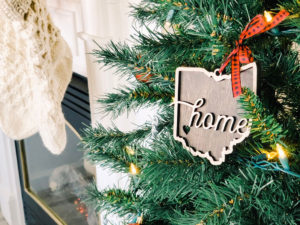

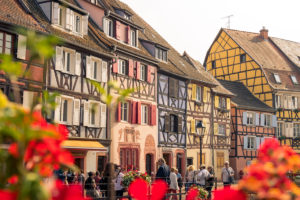

2 Responses
Great article
Thank you on behalf of the author!